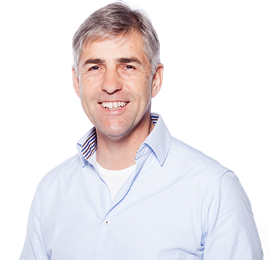As the European Union navigates a complex and rapidly shifting world order, it continues to emphasize the need to strengthen its competitive model—anchored in economic growth, productivity, and innovation. At the same time, it aspires to establish a new social contract that promotes social protection, inclusion, and wellbeing.
Yet these two ambitions increasingly seem at odds with each other.
The Paradox of Progress
Through the lens of Spiral Dynamics, this paradox reflects a clash between developmental value systems:
- The Orange value system (achievement, market logic, individual success), which underpins the competitive paradigm,
- And the emerging Green value system (equality, collaboration, empathy), which demands a more inclusive and sustainable approach to society.
Rather than harmonizing these systems, many policymakers attempt to layer one (Green) atop the other (Orange), resulting in internal contradictions.
Integral Theory, developed by Ken Wilber, suggests that real progress doesn’t come from opposing or reverting but from integration—from transcending and including previous levels of development. The invitation, then, is not to abandon achievement but to evolve into a post-competitive model where collective intelligence, inner development, and systemic care are foundational.
The Competitive Model: Developed Yet Limiting
The current economic model has delivered undeniable benefits:
- Technological innovation,
- Individual autonomy,
- Material prosperity.
Yet it also generates systemic issues across all four quadrants of Wilber’s Integral Model:
- Interior individual: burnout, loss of meaning, identity crisis;
- Exterior individual: job insecurity, performance pressure;
- Interior collective: us-versus-them thinking, polarization, mistrust;
- Exterior collective: inequality, environmental damage, market dependence.
Policy that merely “balances” these effects remains within the limits of the very consciousness that created them. What’s needed is not repair, but a leap in consciousness.
The Collaborative Model: Moving into Second-Tier Thinking
A collaborative model represents a vertical development into what Spiral Dynamics calls Second-Tier Consciousness—a more complex and compassionate awareness that holds paradox without fragmentation.
Such a model would:
- Create value through co-creation rather than competition;
- Measure success by wellbeing, resilience, and collective thriving;
- View conflict not as failure but as opportunity for systemic learning;
- Embed ecological and social responsibility into the core of economic design.
This is not utopia—it’s already emerging:
- Doughnut Economics (as embraced in Amsterdam and Barcelona);
- The Wellbeing Economy Alliance (e.g. Scotland, New Zealand);
- Indigenous economic frameworks, grounded in reciprocity and balance.
These approaches are not a regression, but an evolutionary step forward—toward Integral Leadership, where economics, culture, psychology, and ecology reinforce one another.
The Real Transformation: From Scarcity to Consciousness
The key question, then, is not: How can we make competition fairer?
But rather: From what consciousness are we building our systems?
Both Spiral Dynamics and Integral Theory suggest that much of what we call “scarcity” or “conflict” stems not from material reality, but from conditioned belief systems. We have internalized a story of lack, struggle, and hierarchy—a narrative that becomes self-fulfilling.
This moment in history asks us to go deeper:
- Who do we want to be as a society?
- What values are embedded in our education, leadership, and economy?
- Are we willing to let dying structures die, so that something more whole can be born?
A New Social Contract as an Evolutionary Leap
If the European Union truly seeks a renewed social contract, it must go beyond patching up inequality. It must ask:
Is the system we are trying to protect still the right one to build upon?
A collaborative model is not a compromise or retreat. It is a powerful evolutionary response—one that honors past achievements while rising to meet future complexity.
It is not just a better contract.
It may be the only one still sustainable.
Govert van Ginkel
This article is written by Govert van Ginkel. Govert specializes in Nonviolent and Effective Communication and is active in this field as a trainer, speaker, coach, and mediator. More information about Govert can be found here. The current training offer can be found here
Introduction-evening Nonviolent and Effective Communication
Are you curious about Nonviolent and Effective Communication but still wondering what it could do for you? Join us at the introduction evening and learn more!
more infoInspiration
Register for the ‘Nonviolent and Effective Communication Inspiration newsletter’
In-company training and accredited
company training
For companies, Govert offers customized training to suit your specific needs. Govert also provides accredited (in-company) training for mediators, interpreters, and other professionals.

















